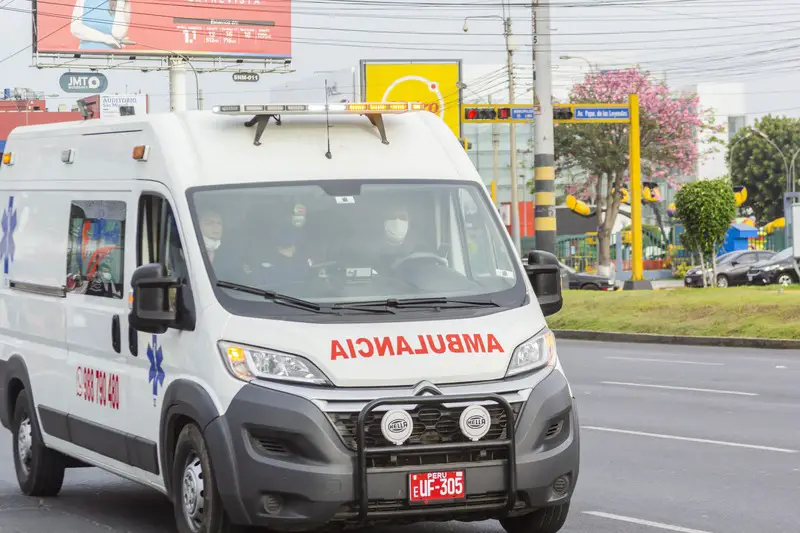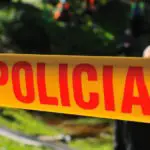An American tourist has died after consuming ayahuasca during a spiritual retreat in Peru’s Amazon region, marking another fatality linked to the growing but unregulated practice of psychedelic tourism in South America.
Aaron Wayne Castranova, 41, from Alabama, passed away on Monday, June 2, 2025, from multiple organ failure after drinking the hallucinogenic herbal tea at La Casa de Guillermo ICONA, a hostel in the indigenous community of Santa Maria de Ojeda in the Alto Nanay district of Peru’s Loreto region. The retreat center is approximately five hours by river from Iquitos, the main gateway to the Peruvian Amazon.
Castranova experienced what authorities described as an organ breakdown that led to his death after consuming the psychoactive brew during a ceremony supervised by a shaman. The forensic examination, led by Dr. Narciso Lopez, coordinator of the Legal Medicine Area of the Public Ministry, determined the cause of death as multi-organ failure with the presence of pleural effusion and acute pancreatitis.
According to hostel managers, Castranova had failed to disclose that he was taking antibiotics before participating in the ayahuasca ceremony, a fact that may have triggered the fatal reaction. Lopez explained that the consumption of ayahuasca alongside certain medications can trigger severe adverse reactions. “It is an inflammatory type problem, which sometimes ayahuasca can produce,” Lopez stated during the investigation.
The Santa Maria de Ojeda community has become increasingly associated with spiritual tourism, where visitors participate in psychedelic rituals under the guidance of shamans or spiritual guides. These ceremonies typically involve the consumption of ayahuasca, a brew made from the Banisteriopsis caapi vine and the Psychotria viridis leaves, both of which are indigenous to the Amazon rainforest. The mixture contains dimethyltryptamine (DMT), a powerful hallucinogen that is illegal in the United States and many other countries.
The U.S. Embassy in Peru has repeatedly warned American citizens against participating in ayahuasca ceremonies. In January 2025, the embassy issued its strongest warning yet, explicitly advising Americans to avoid consuming ayahuasca and kambo due to escalating safety risks. Embassy officials noted that facilities or groups offering ayahuasca/kambo are not regulated by the Peruvian government and may not follow health and safety laws or practices.
The embassy’s warning specifically cautioned that ayahuasca can cause several negative health effects, including nausea, vomiting, increased heart rate, and even death. The alert emphasized that “in 2024, several U.S. citizens died or experienced severe illness, including mental health episodes, following consumption of ayahuasca.”
Beyond health risks, the embassy documented additional dangers facing tourists at ayahuasca retreats. U.S. citizens have reported being sexually assaulted, injured, or robbed while under the influence of these substances at healing or retreat centers. The ceremonies often take place in remote areas with limited access to medical facilities or emergency services, and most facilities lack basic first aid or emergency response plans for participants who experience adverse physical or mental effects.
Ayahuasca tourism has expanded dramatically in recent decades, transforming from traditional indigenous healing practices into a commercial industry catering to international visitors seeking spiritual experiences. The brew has been used for centuries by Amazon tribes for healing and spiritual rituals, with shamans traditionally guiding participants through the experience. However, the commercialization of these practices has raised concerns about safety standards, authentic guidance, and exploitation of indigenous traditions.
The growth of psychedelic tourism has attracted both legitimate practitioners and opportunistic operators seeking to profit from the trend. Some retreat centers are operated by individuals without a genuine understanding of traditional practices, prioritizing financial gain over participant safety. Reports have emerged of fake shamans conducting ceremonies and retreat operators taking advantage of tourists unfamiliar with local customs or safety measures.
Castranova’s death follows similar incidents involving international tourists at South American ayahuasca retreats. In 2024, a British woman named Maureen Rainford, 54, died at an ayahuasca retreat in Bolivia after suffering a medical emergency ten minutes after consuming the substance. Rainford, a social worker and mother of three, had paid approximately $800 for a ten-day stay at the Ayahuasca and San Pedro Pisatahua Retreat in the Amazon.
International health authorities have joined the U.S. Embassy in issuing warnings about ayahuasca tourism. Costa Rica’s Ministry of Health issued a similar advisory in January 2025, warning against consuming ayahuasca and ibogaine at local retreats. Australian travel authorities have also cautioned that several tourists have died after consuming hallucinogenic substances during these ceremonies.
As of June 7, no family members have yet contacted Peruvian authorities or visited the morgue to arrange for the repatriation of Castranova’s remains. Officials have contacted the U.S. Embassy to coordinate the repatriation process. The incident remains under investigation by local authorities in the Loreto region.











